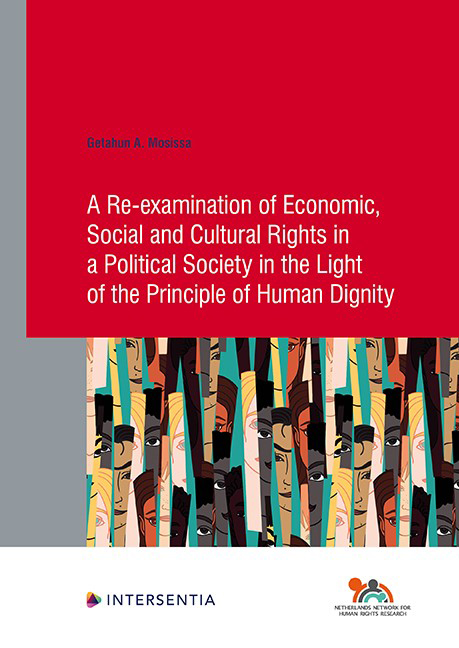Book contents
- Frontmatter
- Acknowledgments
- Dedication
- Contents
- Acronyms
- Chapter 1 General Introduction
- PART ONE THE CONCEPTIONS AND THEORIES OF HUMAN RIGHTS
- PART TWO THE LEGAL OBLIGATIONS OF THE STATE UNDER ESC RIGHTS IN THE LIGHT OF INTERNATIONAL ESC RIGHTS JURISPRUDENCE
- Bibliography
- Samenvatting
- Curriculum Vitae
- Human Rights Research Series
Chapter 6 - Access to Justice
Published online by Cambridge University Press: 25 May 2021
- Frontmatter
- Acknowledgments
- Dedication
- Contents
- Acronyms
- Chapter 1 General Introduction
- PART ONE THE CONCEPTIONS AND THEORIES OF HUMAN RIGHTS
- PART TWO THE LEGAL OBLIGATIONS OF THE STATE UNDER ESC RIGHTS IN THE LIGHT OF INTERNATIONAL ESC RIGHTS JURISPRUDENCE
- Bibliography
- Samenvatting
- Curriculum Vitae
- Human Rights Research Series
Summary
INTRODUCTION
There is no doubt, the right to access to justice holds a central place in the entire human rights protection system. It is in fact seen as the fulcrum of the effectiveness of the protection of human rights and the test (evidence) of the existence of the rule of law within a given State. This Chapter has accordingly two main purposes. First, it identifies the major elements of the right to access to justice developed in the case law. Second, it develops a critical position on how each of these elements should be applied in the context of ESC rights. Given these two main purposes of the Chapter, it is necessary to somehow depart from the general structure of analysis adopted in the rest of the chapters in Part two, that is, referring to the case law of each tribunals and monitoring bodies turn by turn. Here, first, the major elements of the right to access to justice are identified and, then, their meaning and implications are discussed in the light of international ESC rights from across the jurisdictions. However, it should be noted that there is no substantive departure from the general methodological approach adopted in this Part but only in the structure of analysis.
THE RIGHT TO ACCESS TO JUSTICE FOR ESC RIGHTS?
For many years, the right to access to justice has been identified only with those rights commonly referred to as civil and political rights or the so-called negative rights. ESC rights were considered as mere programmatic rights which do not give rise to justiciable claims before the court of law or another tribunal. That is, ESC rights were not seen as ‘real’ human rights giving rise to the right to access to justice. This view, in turn, was behind the whole justiciability discourse which mainly concerned the question whether ESC rights bestow on individuals the right to claim and obtain remedy against violation of these rights. Interestingly, the debate on the justiciability of ESC rights is now exhausted and, hence, of no interest for the discussion here. More importantly, the substantive argument on the justification of ESC rights has already been provided in Chapter four.
- Type
- Chapter
- Information
- A Re-examination of Economic, Social and Cultural Rights in a Political Society in the Light of the Principle of Human Dignity , pp. 191 - 222Publisher: IntersentiaPrint publication year: 2020



